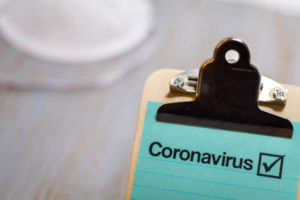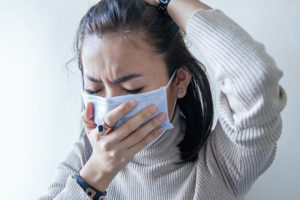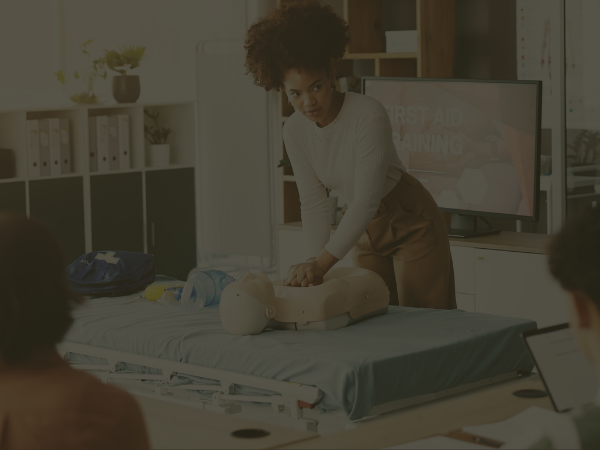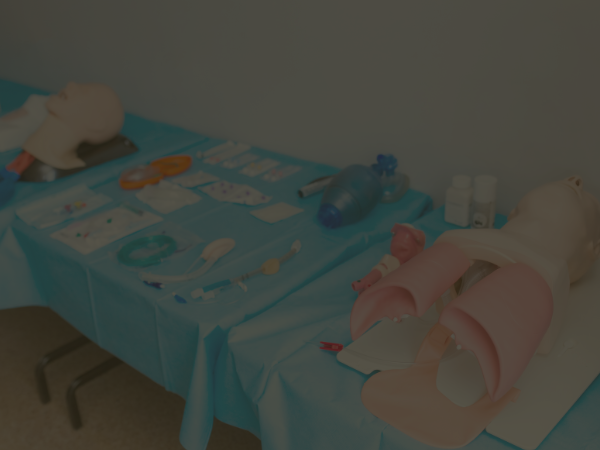With so much information circulating about coronavirus symptoms, how do you know if you or someone you’re assisting has COVID-19? This symptom checker will help you learn what to look for so you can protect yourself and others.
A brief background of coronavirus
First, what is coronavirus?
Severe acute respiratory syndrome coronavirus 2, or SARS-CoV-2, was first identified in Wuhan, China in late 2019. The World Health Organization officially identified the “2019 novel coronavirus” in January 2020 and had declared a global health emergency by the end of the month due to rising numbers of cases in China and elsewhere. The illness caused by the novel coronavirus is now commonly referred to as COVID-19, which is an abbreviation for “coronavirus disease” and 2019, the year it first appeared.
Despite restrictions in travel and local lockdowns, the WHO declared a global pandemic in March. In the U.S., schools closed and people started working from home to attempt to stop the spread. By late May, 100,000 people in the U.S. had died from COVID-19; by September, 200,000 had died.
How is coronavirus spread?
COVID-19 is highly contagious and spread through respiratory droplets that are released when people talk, cough, sneeze, or laugh.
What are coronavirus symptoms?
 Like other coronaviruses, COVID-19 is primarily a respiratory illness. That means it affects the lungs. However, evidence indicates COVID-19 also impacts other bodily systems, including the neurological and cardiac systems.
Like other coronaviruses, COVID-19 is primarily a respiratory illness. That means it affects the lungs. However, evidence indicates COVID-19 also impacts other bodily systems, including the neurological and cardiac systems.
Symptoms typically start between 2 and 14 days after exposure to the virus. However, most people develop symptoms within five days of exposure. Symptoms usually start mild and for some people, they gradually worsen over the course of the illness. Shortness of breath, chest pain, bluish lips or confusion require immediate medical attention and often results in hospitalization.
Early symptoms include:
- Fever
- Muscle aches and pains
- Cough
- Sore throat
As the illness progresses, patients also report:
- Shortness of breath or difficulty breathing
- Sore throat
- Muscle aches
- Chills
- Headache
- Runny nose
- Chest pain
- Pink eye
Since these symptoms are similar to other viruses, like the common cold or influenza, determining the cause of an illness will likely require diagnostic testing by a medical professional. However, there are a few symptoms that appear to be unique to COVID-19.
For example, people with COVID-19 often report losing their sense of taste and smell in the early days of their illness. This is not a symptom normally associated with flu or other types of rhinoviruses or coronaviruses.
Additionally, children with COVID-19 seem to develop diarrhea and vomiting more often than adults.
Who is at risk for severe coronavirus symptoms?
Some people are at greater risk for developing severe symptoms resulting from coronavirus. These include people with:
 Heart failure, coronary artery disease or cardiomyopathy
Heart failure, coronary artery disease or cardiomyopathy- Cancer
- COPD
- Type 2 diabetes
- Severe obesity
- Chronic kidney disease
- Sickle cell disease
- Solid organ transplant recipients
Providing ACLS to Someone with COVID-19
If you find yourself in a situation where you must administer advanced cardiac life support to someone suspect of or confirmed to have coronavirus, there’s an algorithm to follow. The first step is donning PPE and limiting the number of personnel assisting the patient. Next, you’ll need to start CPR. Be sure to give the patient oxygen but limit aerosolization. Attach a monitor and prepare to intubate. From there, follow the procedures outlined in the appropriate COVID algorithm.
Why You Should Update Your BLS Certification
People with COVID-19 can go downhill quickly so it’s important to know what to do, whether you’re a medical professional or non-healthcare worker. Our BLS courses are entirely online. The certifications we offer are accepted 98% of the time and are Joint Commission compliant. We adhere to the latest ILCOR standards and make it easy to get a certification or recertification.
Register here to get started!







Leave a Reply